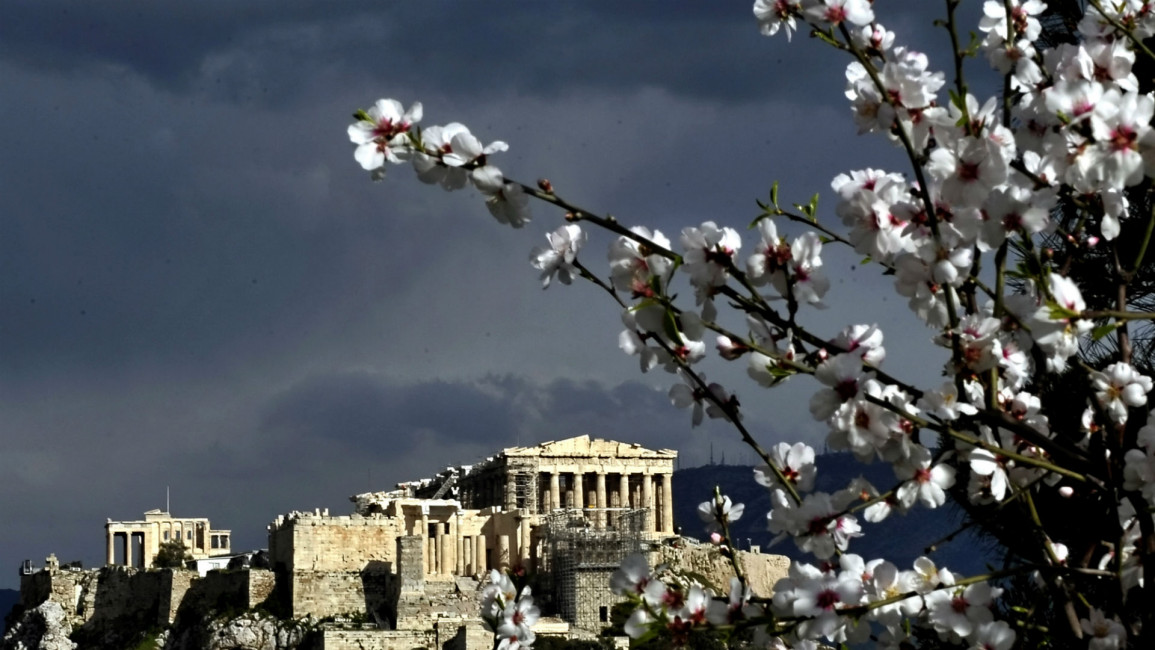
Can direct democracy work in the Arab world?
I recently attended a forum in Tunis on "direct democracy", which was organised by Swiss Broadcasting Corporation.
Direct democracy, as practised in Switzerland, allows citizens to vote on specific issues in referrenda as well as elect MPs. Recently the Swiss have voted on immigration limits, tax rates and universal health insurance.
Discussing any form of democracy in an Arab region where regimes are being toppled, countries are collapsing and where people are fighting over identity, religion, land and power seems to be an intellectually indulgent or futile exercise.
| Arabs have imported the forms of democracy while ignoring the essence: people's participation in governance. |
But the forum's organisers chose Tunisia as it so far represents the most successful of the democracies that came about through the "Arab Spring", as well as being the country in which political Islam, represented by the Ennahdha Movement, clearly demonstrated its respect for the principles of democracy.
The forum included presentations that attempted to deal with some complicated topics, such as the relationship between Islam and democracy, and the willingness of people in a region divided by ideology and sects to try democracy, having only experienced dictatorships that wreaked havoc in Arab countries.
One participant said direct democracy reminded people in the Arab region of the Libyan nightmare under Muammar Gaddafi, who dissolved parliament and political parties and banned elections under the slogan "authority is for the people".
Further, the democratic and semi-democratic experiences that have taken place in the Arab world were soon acclimatised to become part of the authoritarian structures that have ruled over Arab populations for centuries.
Regimes such as Mubarak in Egypt, Ben Ali in Tunisia and the Syrian regime under Assad senior and junior all claimed to be democracies, complete with tokenistic political pluralism, rigged elections and ceremonial institutions.
Arabs have imported the forms of democracy while ignoring the essence: people's participation in governance. What's the point of talking about a new generation of democracy in an environment that lacks basic democratic culture?
Despite the objections raised during the discussions, direct democracy seems attractive to the Arab region, once we discover more about it.
Direct democracy was the first democratic model implemented in history, as it was the system adopted in Athens in ancient Greece.
Parliamentary democracy developed in the West after religious reformations and liberation movements. It attempted to encourage the widest possible popular base to engage in decision-making through elections and other forms of democratic participation.
However, this model also became a "democracy of the nobility" controlled and dominated by the powerful, the wealthy and the influential. Despite its faults, this system remains the best developed so far.
| The possibility of swiss-style direct democracy in the Arab world is as remote as the Arabian sand dunes being covered by the snows of Switzerland. |
The Global Forum for Modern Direct Democracy in Tunis cast a light on the faults and limitations of parliamentary democracy. The will of the people has been hijacked by financial and business lobbies in collaboration with those in power and the media.
Thus, populations are mere cameos in the democratic theatre that are required to silently play their roles in front of ballot boxes, before returning to their seats as spectators.
The Tunis Declaration
The forum's closing statement, called "The Tunis Declaration" states: "We hope and pray for the day when democracy resides wherever people form communities. Democracy must be the right and responsibility of every individual, whoever you are, whatever your economic or social status."
This hope, this prayer, will of course not come true until people engage in direct democracy, instead of democracy being practised on behalf of the people, which is currently the case.
However, this is an unattainable dream in an Arab region where some are trying to deny people their right to think, and their engagement in governance.
Western democracy was a result of religious reformation, and without a real religious reformation in the Arab region all discussions of successful Arab democracies remain fantasies.
Opinions expressed in this article remain those of the author and do not necessarily reflect the opinions of al-Araby al-Jadeed, its editorial board or staff.
This is an edited translation from our Arabic website.




